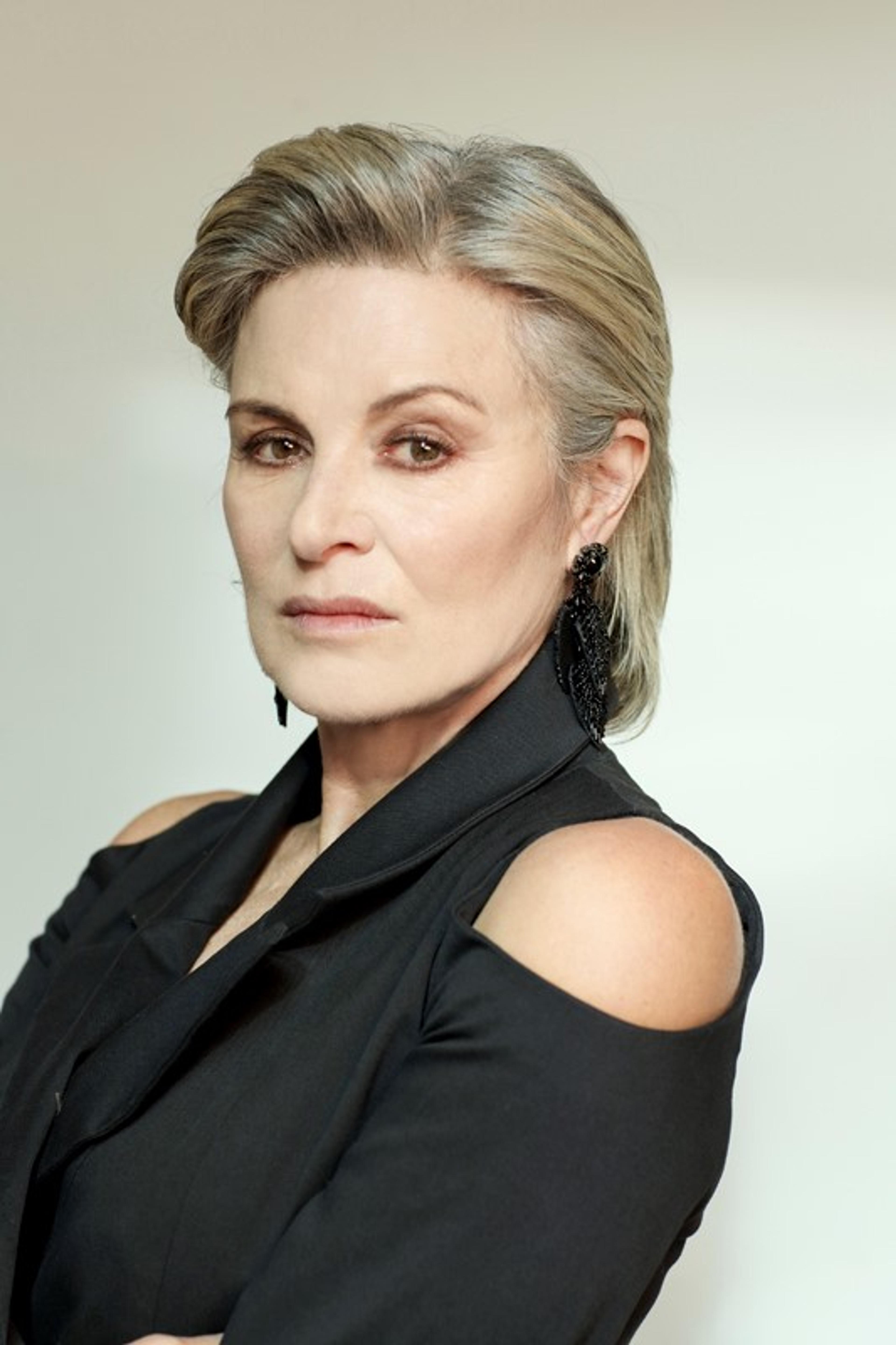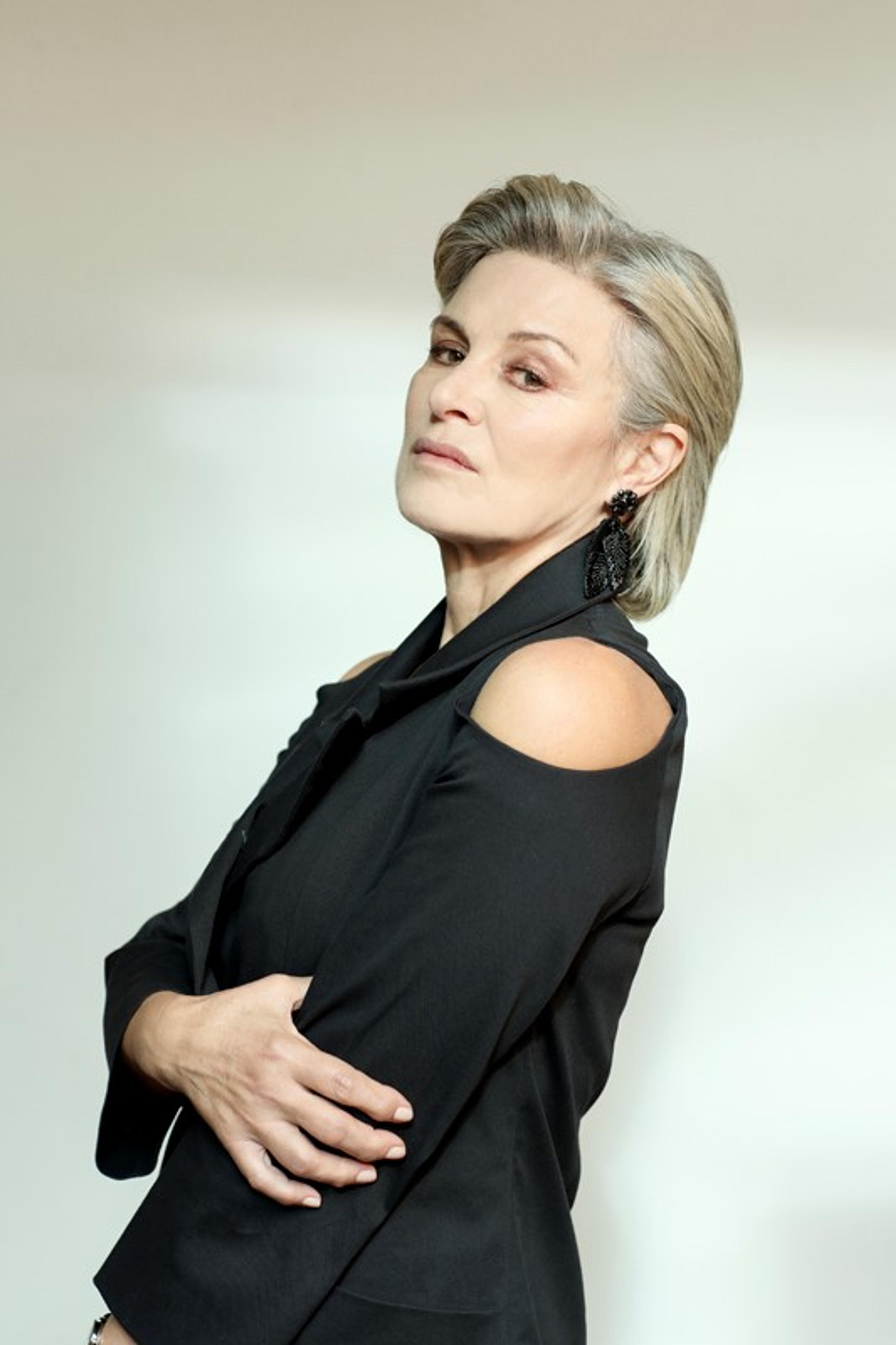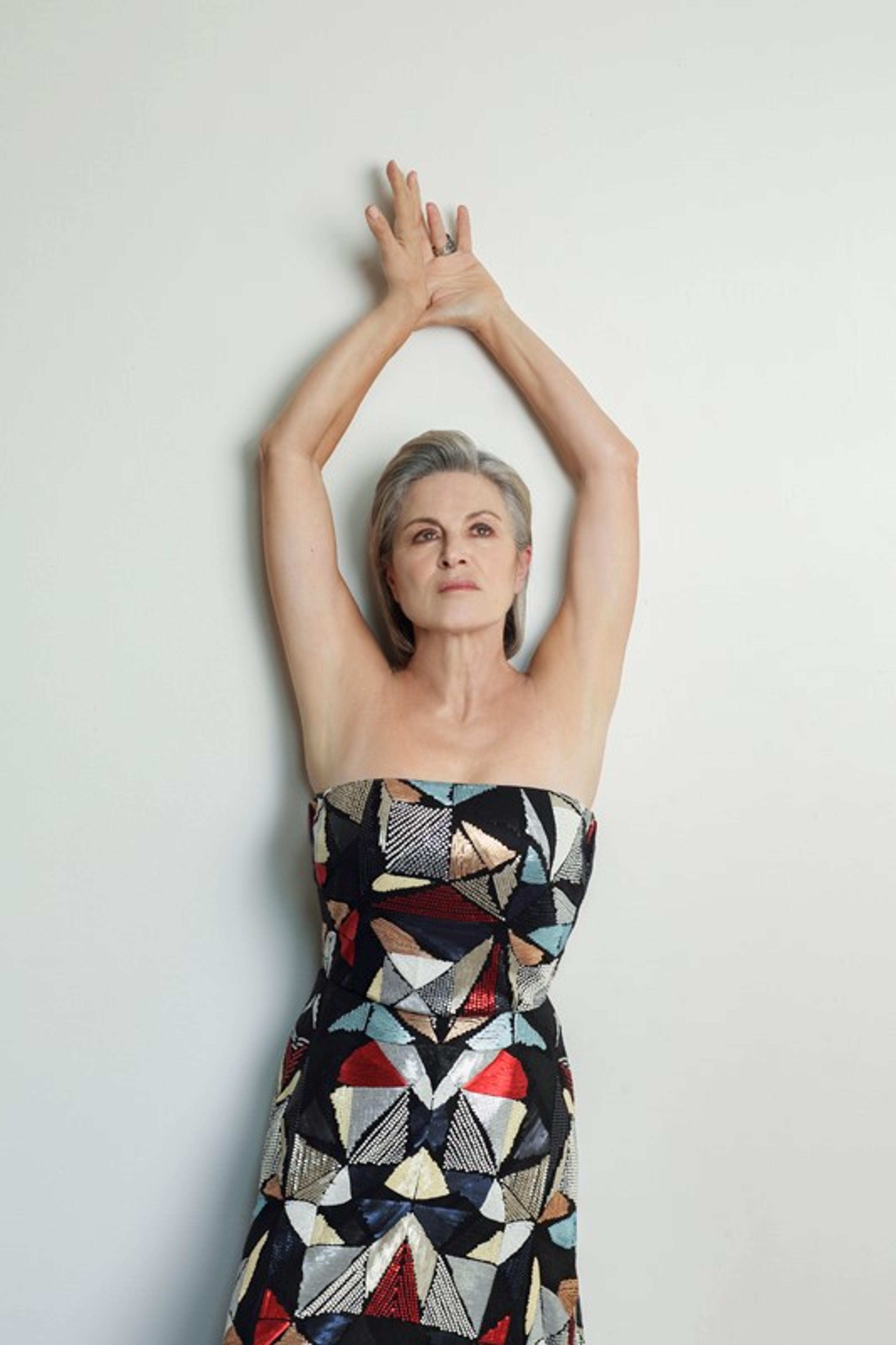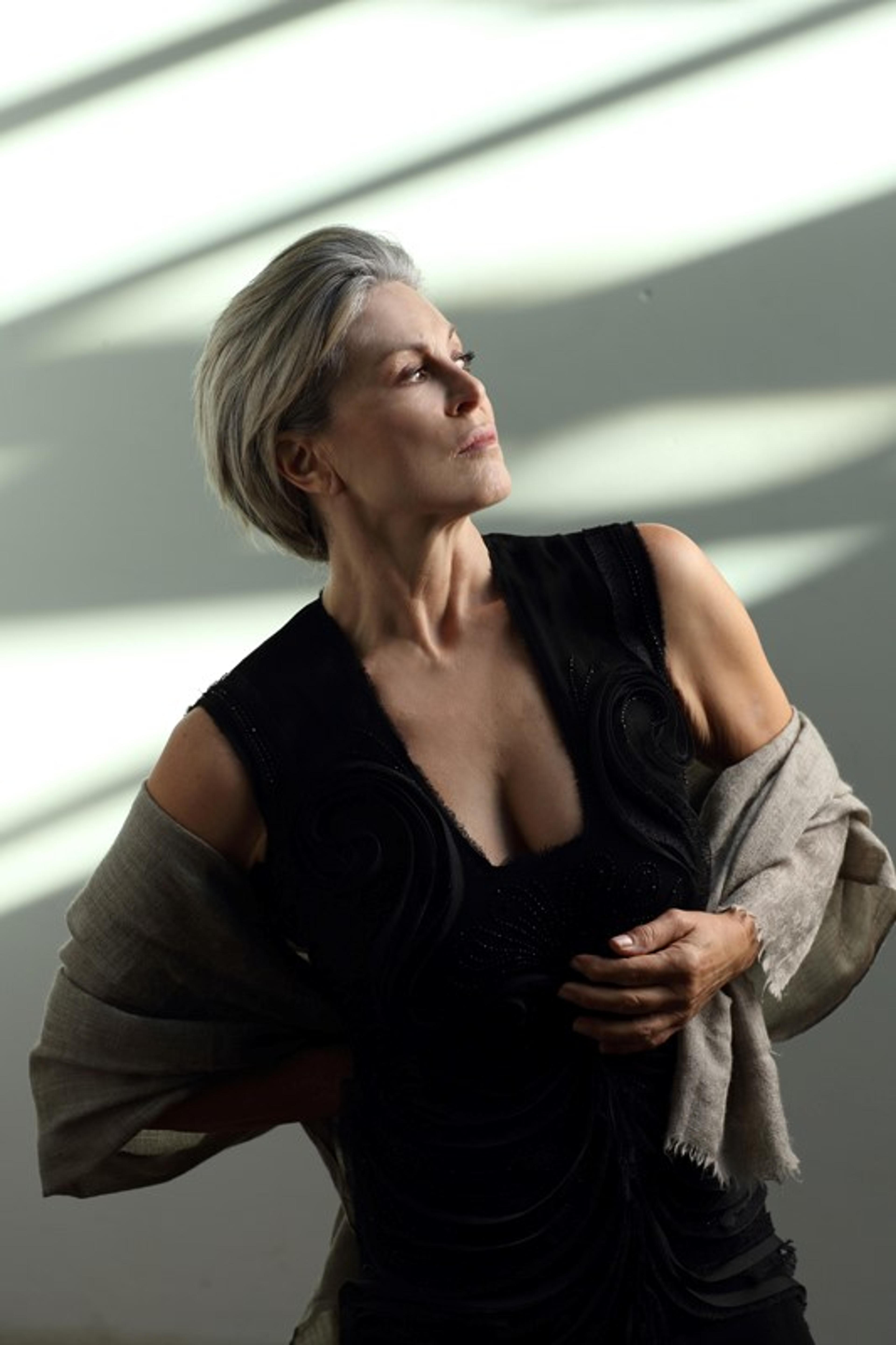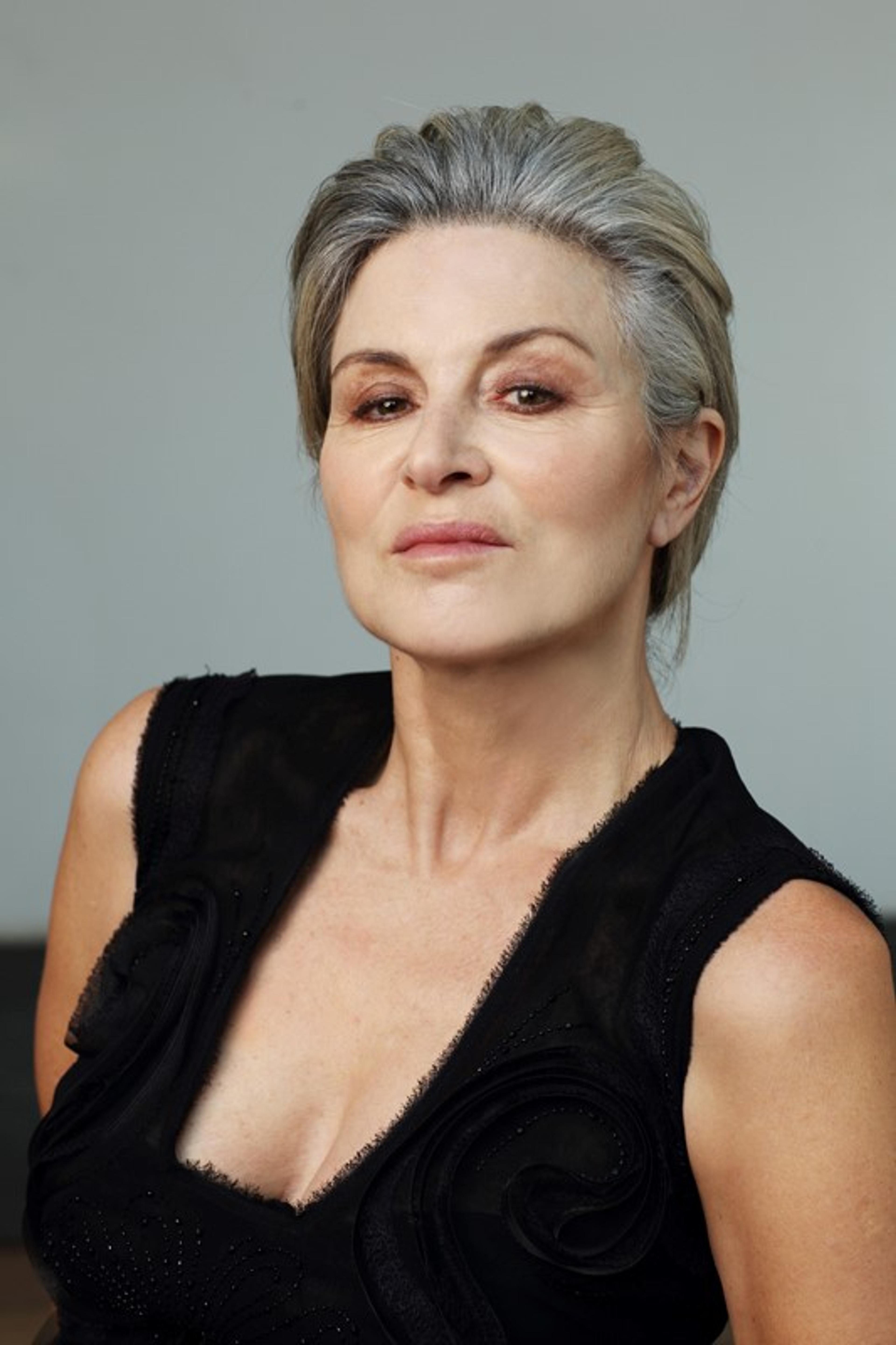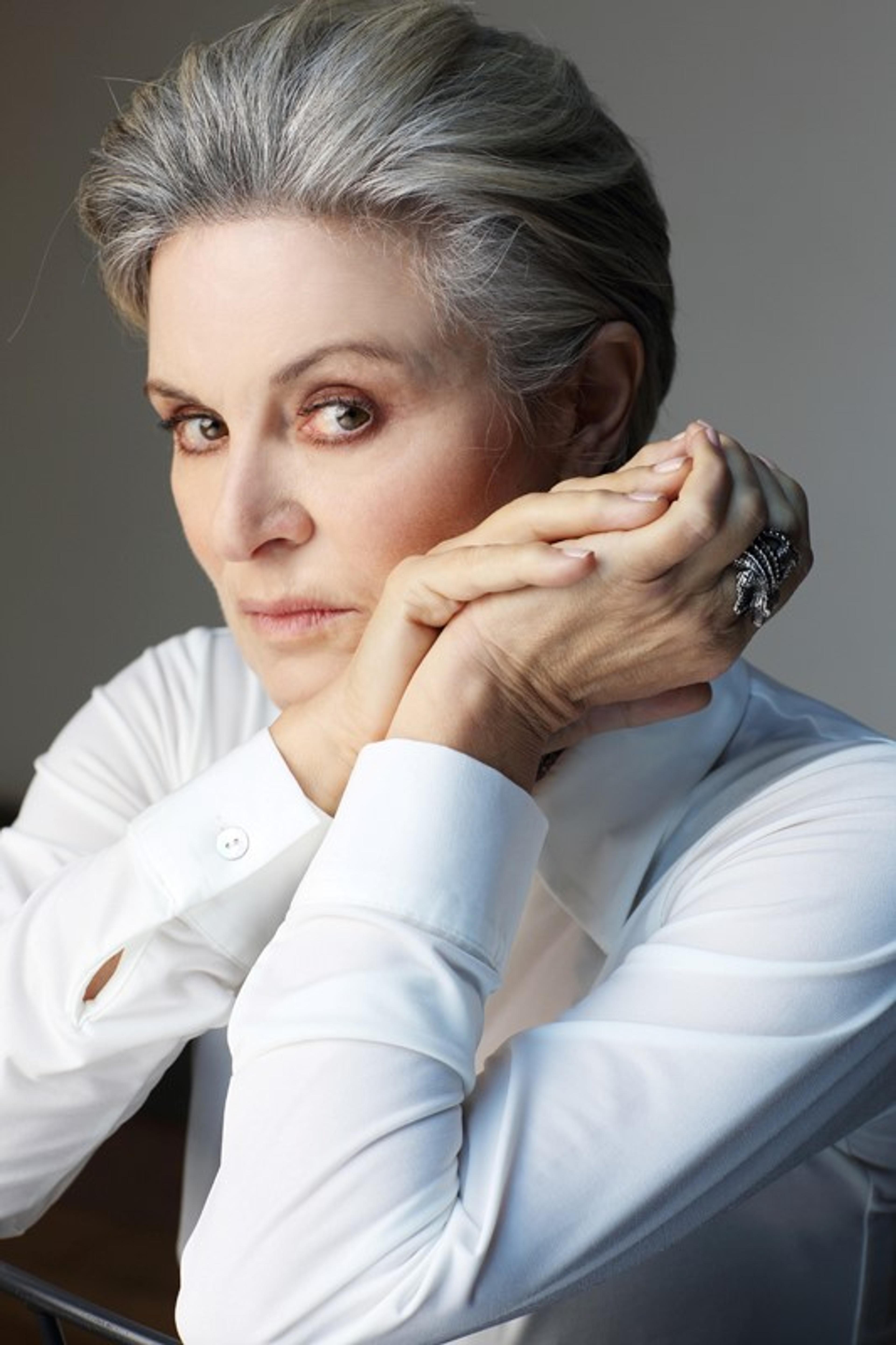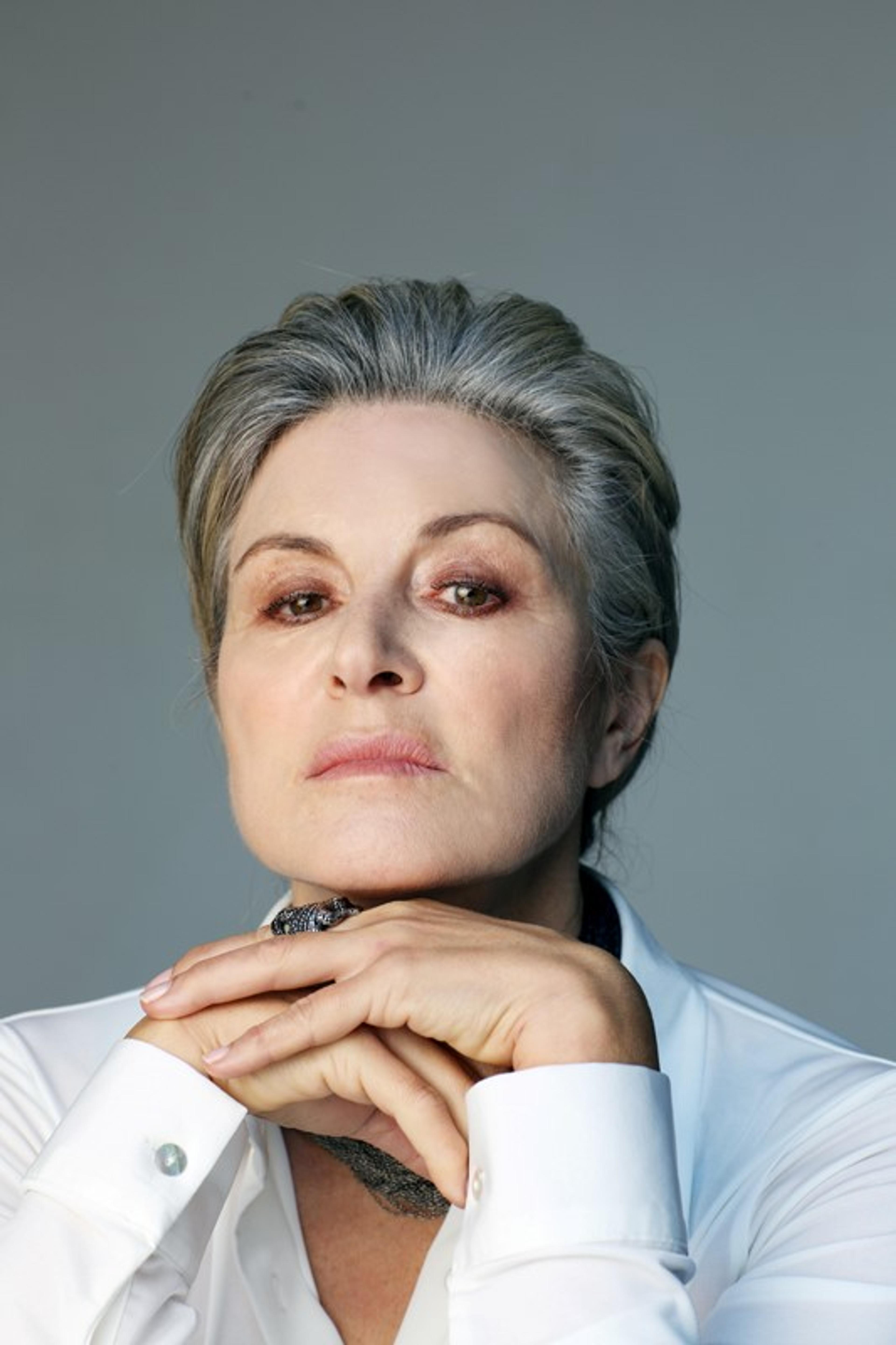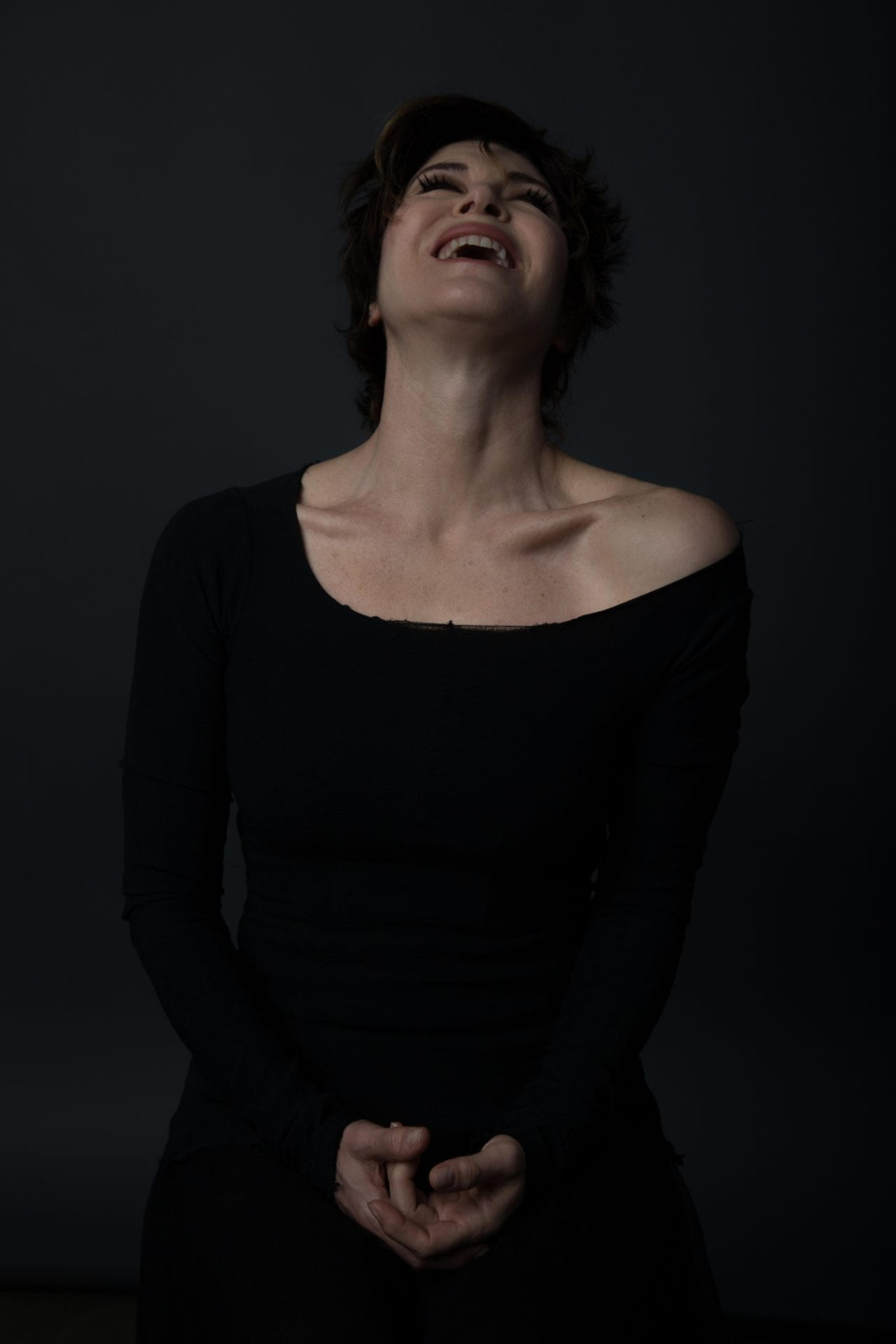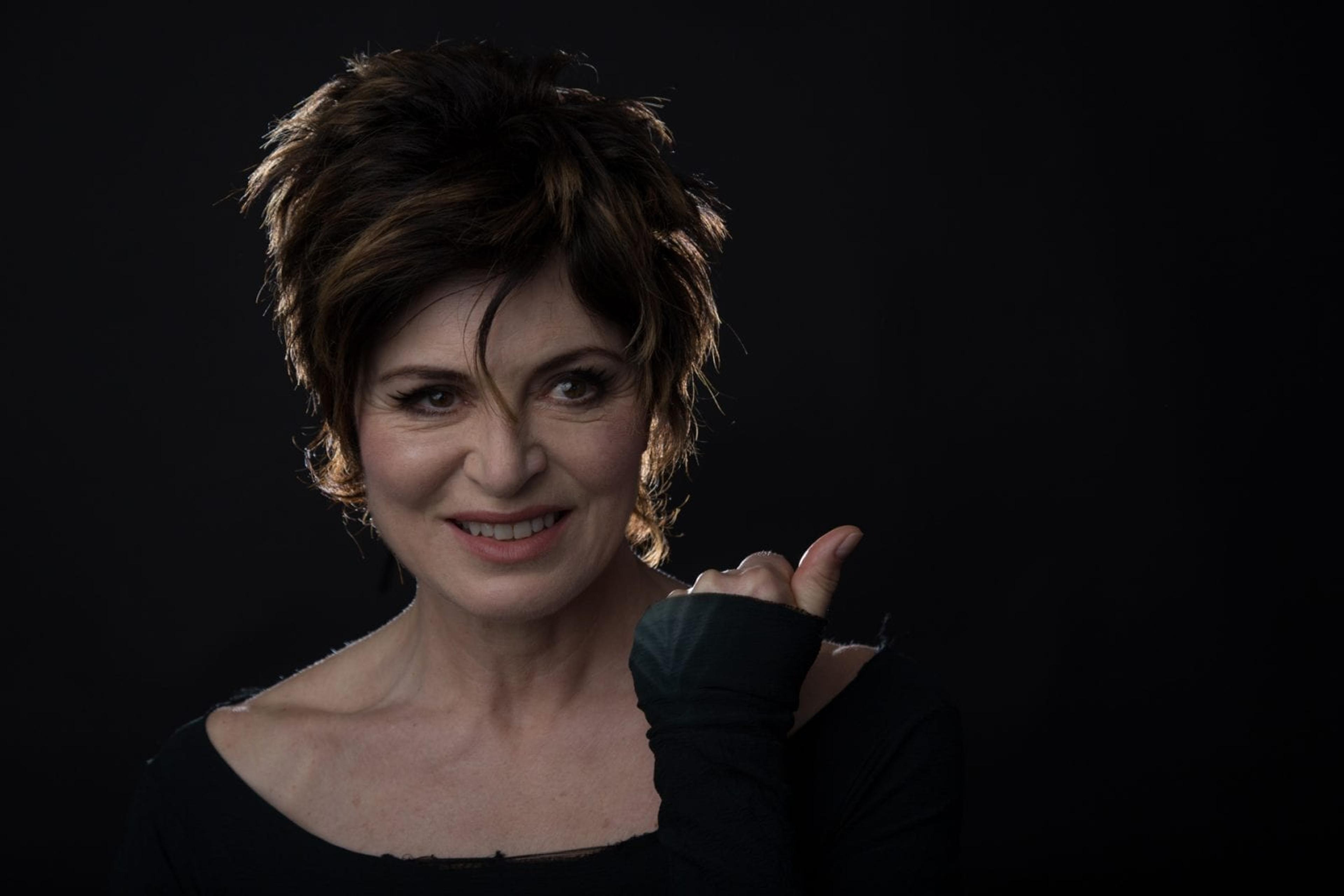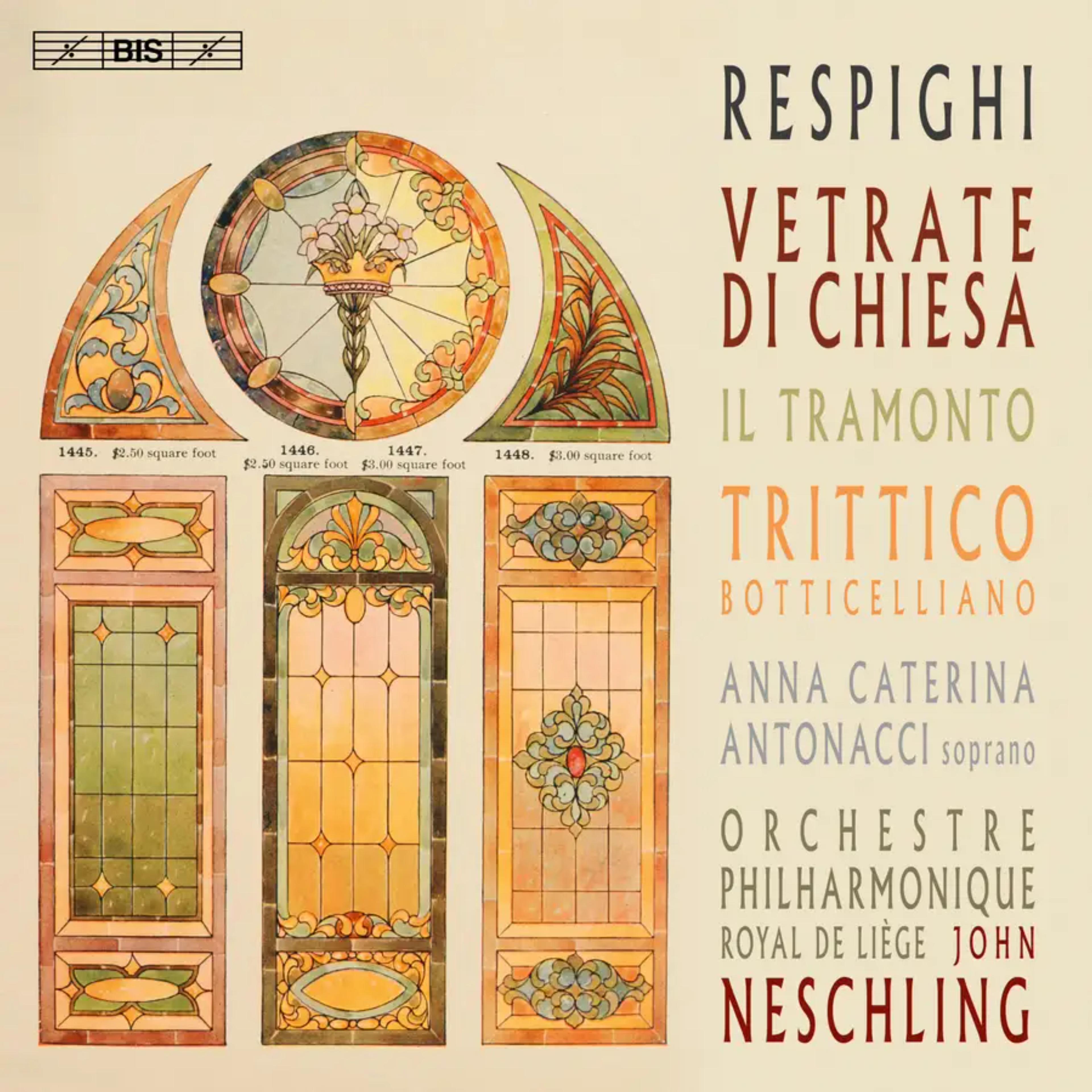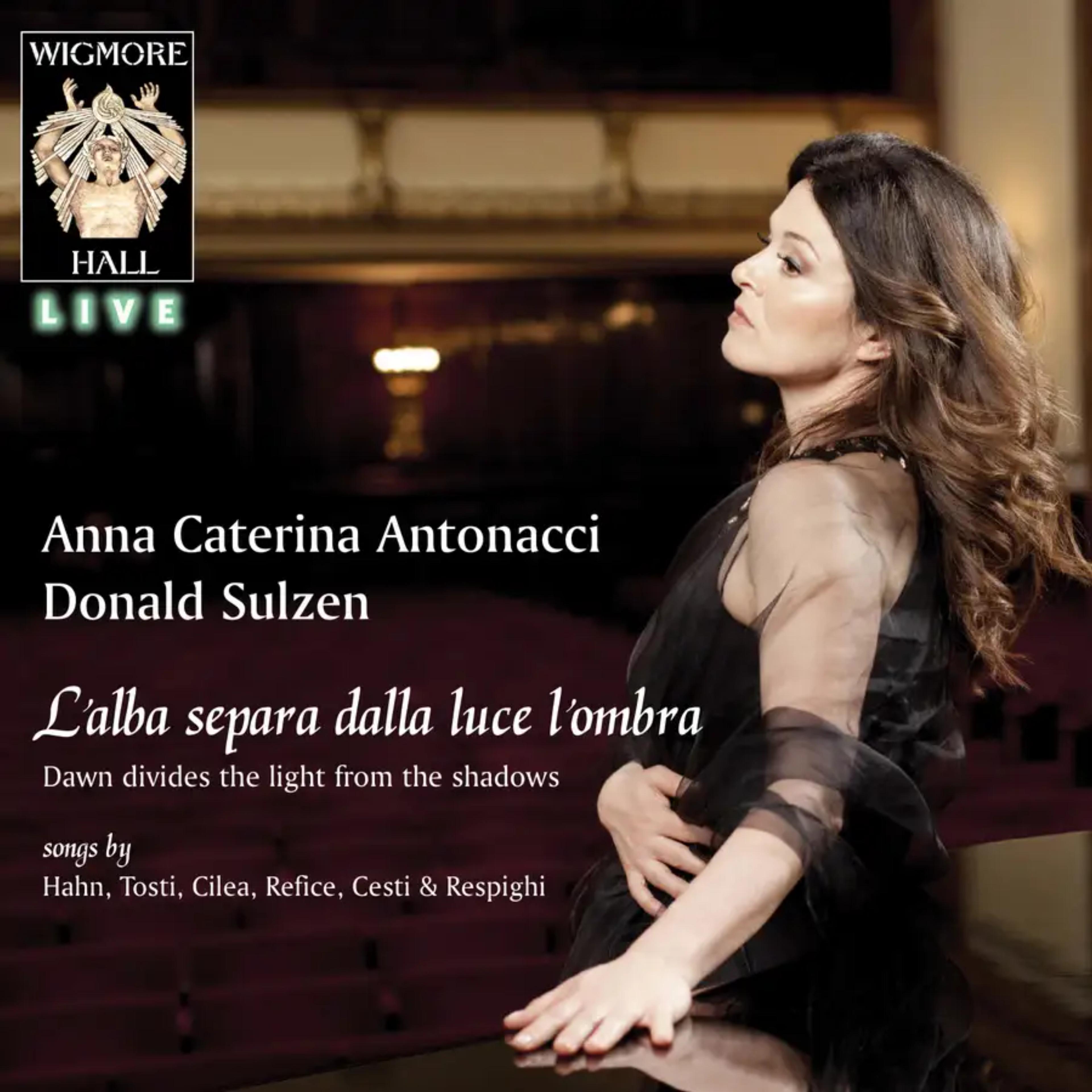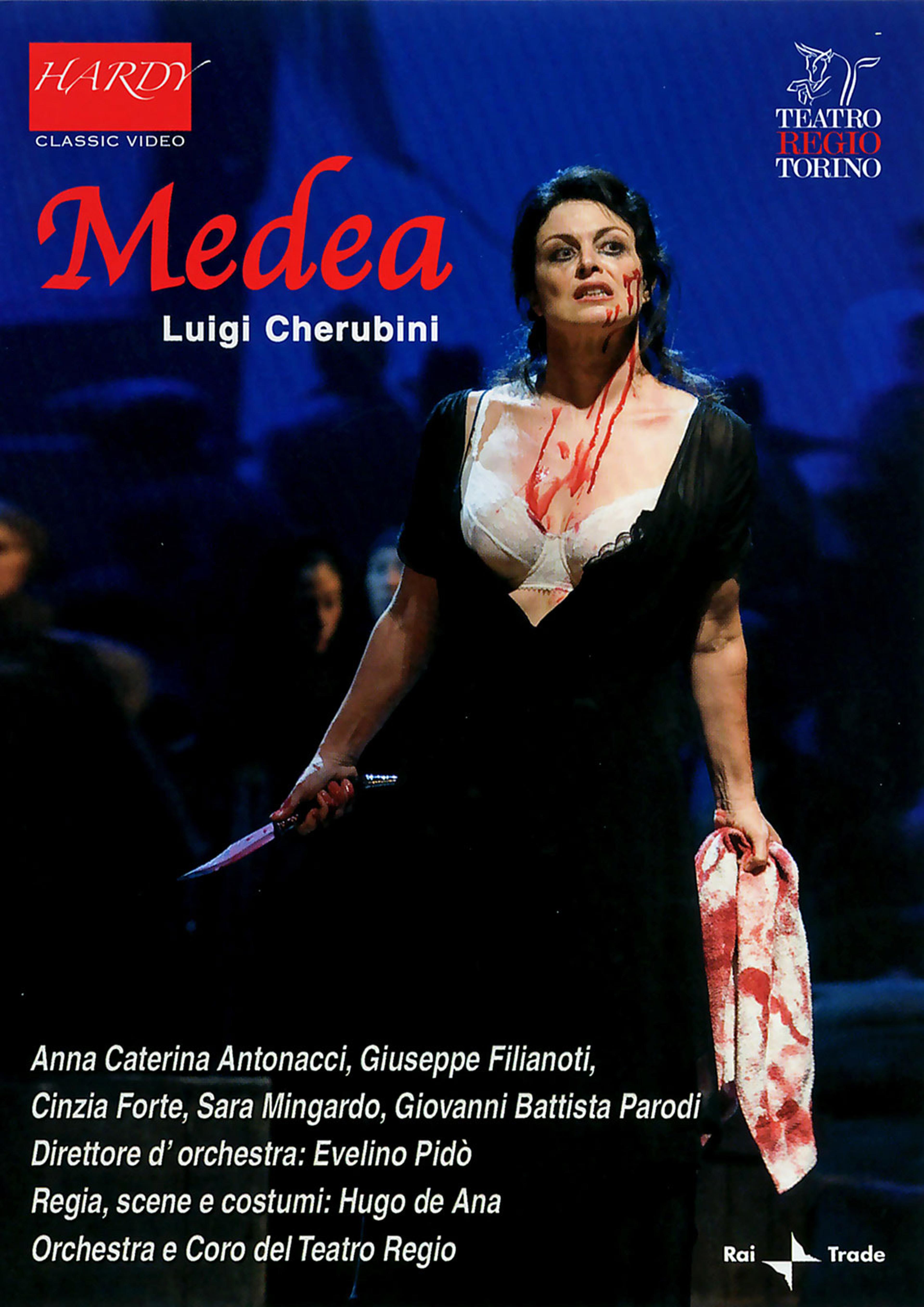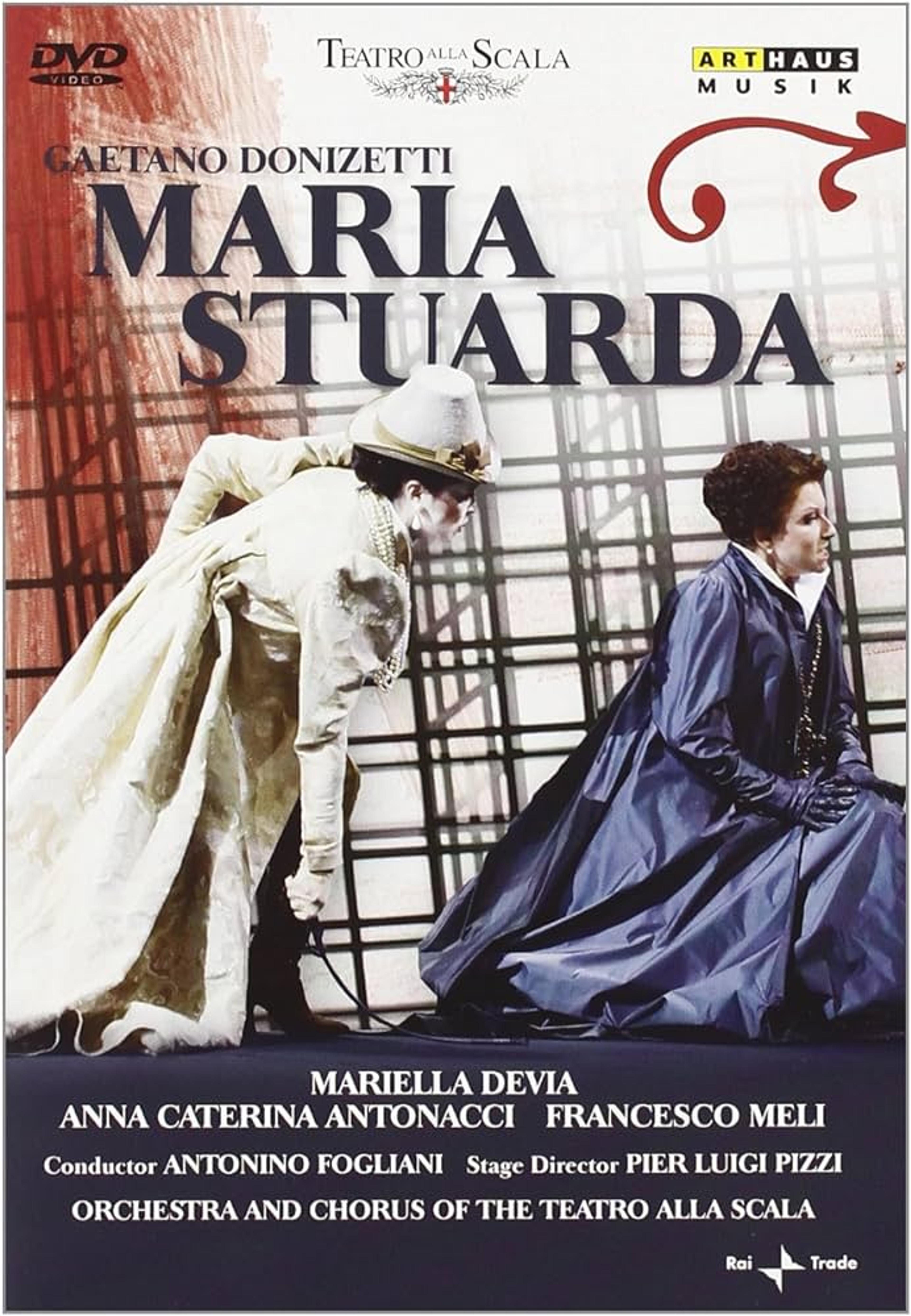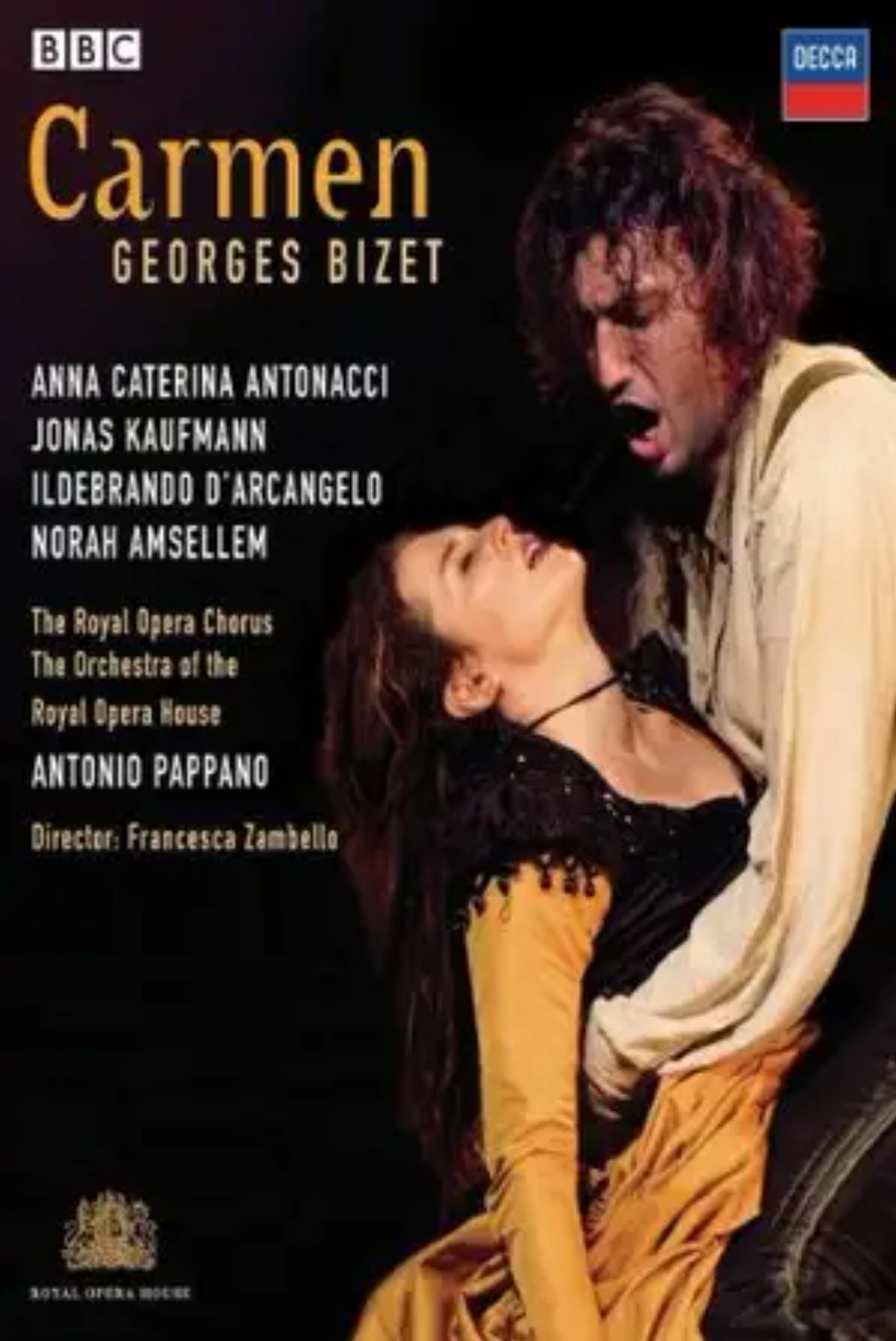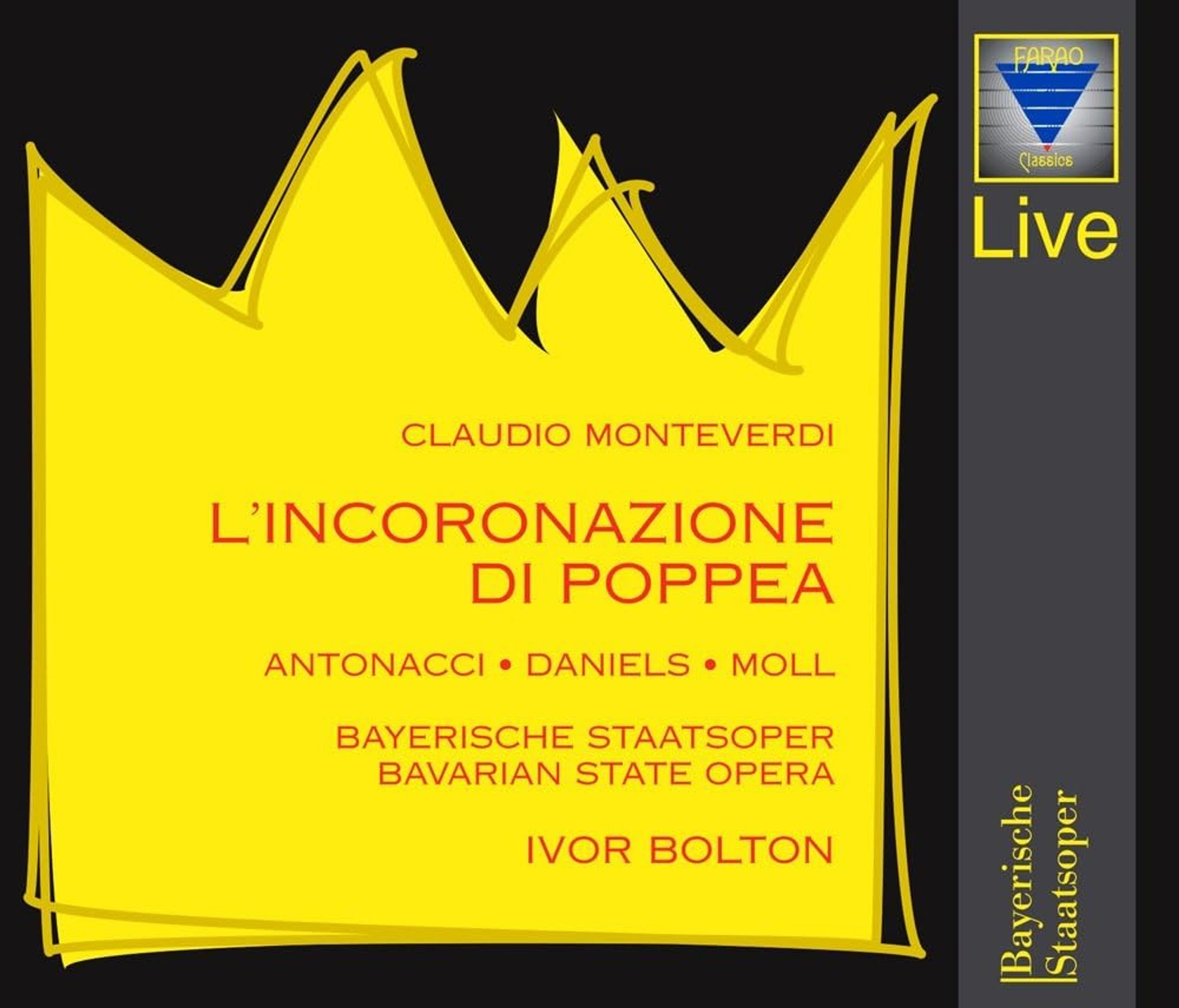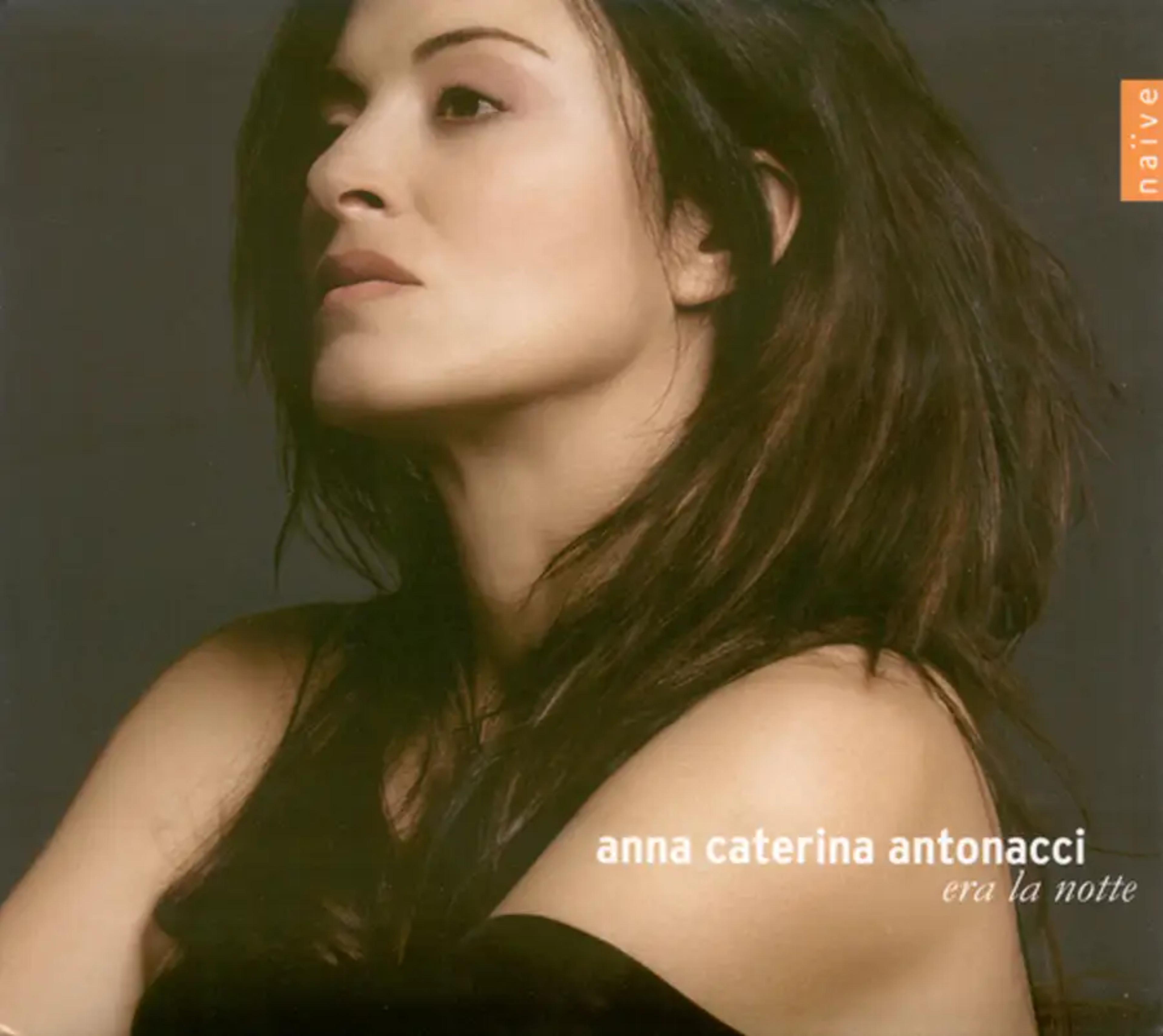Anna CaterinaAntonacci
- Soprano


About Anna Caterina
Established as one of the finest sopranos of her generation, Anna Caterina won prestigious prizes at the Voci Verdiane, Callas and Pavarotti competitions.
She has been honoured with the ‘Chevalier de l’Ordre National de la Légion d’honneur’ by the French Republic, which is the highest national distinction one can receive. Her first recording Era la Notte for the Naïve label received great acclaim and she has also recorded L’Alba separa dalla luce l’ombra for Wigmore Live, with her pianist Donald Sulzen, featuring songs by Tosti, Cilea, and Hahn.
Anna Caterina was elected one of the ‘Accademici Effettivi’ by the distinguished panellists of the General Assembly of the Academicians of Santa Cecilia in 2021.
Her recent highlights include performances of the role Madame de Croissy in Poulenc’s Dialogues des Carmélites in a production by Emma Dante at the Teatro dell’Opera di Roma, as well as the Bayerische Staatsoper. She also recently sung a revival of her role as Madame de Croissy in Poulenc’s Dialogues des Carmélites, this time at the Teatro la Fenice, followed by a production of La voix humaine at the Teatro del maggio musicale fiorentino.
Contact
For availability and general enquiries:

Fabiana Dalpiaz
Representation
Season Highlights
Video
- Playing
Anna Caterina Antonacci: Poulenc’s “La Voix Humaine” (Verbier Festival, July 2022)
Anna Caterina Antonacci joins the Verbier Festival Chamber Orchestra and conductor, Claudio Vandelli, to perform “La Voix Humaine” by Francis Poulenc. Directed by: Corentin Leconte Venue: Salle des Combins (Verbier, Switzerland) Credit: Production: © Idéale Audience Video Credit: © Medici.tv
Anna Caterina Antonacci sings Iphigénie en Tauride, Grand Théâtre de Genève
Credit: Grand Théâtre de Genève
Anna Caterina Antonacci - "La voix humaine" (Paris, 2013)
Credit: Opera Comique
Dido's Lament / Anna Caterina Antonacci / Accademia degli Astrusi / Federico Ferri
Henry Purcell - Dido's Lament da Dido and Aeneas Anna Caterina Antonacci - soprano, Accademia degli Astrusi, Federico Ferri - direttore Violini: Lorenzo Colitto, Maurizio Cadossi, Marco Bianchi, Daniela Godio, Gabriele Raspanti, Gianandrea Guerra, Isabella Bison, Nicola Bignami Viole: Gianni Maraldi, Valentina Soncini Violoncelli: Mauro Valli, Cecilia Amadori Violone: Giovanni Valgimigli Tiorba, arciliuto e chitarra barocca: Stefano Rocco, Maurizio Piantelli Arpa doppia: Marianne Gubri Clavicembalo e organo: Daniele Proni Credit: Teatro Comunale di Bologna
0:12 / 9:38 Anna Caterina Antonacci talks with Francesca Zambello - Two Women & The Trojans - ITALIAN
Credit: San Francisco Opera
Selected Repertoire
BERLIOZ
La Damnation de Faust • Les Troyens (Cassandre)
BIZET
Carmen
BRITTEN
Gloriana
CHERUBINI
Medea
FAURE
Pénélope
GLUCK
Armide • Alceste • Iphigenie en Tauride
MASSENET
Don Quichotte • Werther (Charlotte)
MONTEVERDI
Incoronazione di Poppea (Poppea and Nerone) • Orfeo
OFFENBACH
La Grande-Duchesse de Gérolstein • La Périchole
PAISIELLO
Nina pazza per amore
POULENC
La voix humaine
RAVEL
L’heure espagnole
ROSSINI
Ermione
WOLF-FERRARI
Il segreto di Susanna
Press
La Voix Humaine (Poulenc)
Teatro dell'Opera di RomaOct 2025Nel solco di una maggiore frequentazione con le scene romane (se ne ricordano le produzioni nel 1971 con la splendida Virginia Zeani, nel 2001 con Raina Kabaivanska e l’ultima nel 2017 con lo stesso soprano sul palco per l’attuale ritorno) La voix humaine di Poulenc ribadisce una volta per tutte la statura di cantante-attrice di lusso del soprano Anna Caterina Antonacci, tre anni fa sempre a Roma superlativa vecchia priora Madame de Croissy nei Dialogues des Carmélites, di pari autore, e ora tornata con un’Elle donna matura (non proprio come la desiderava Cocteau, ma come forse la voleva Poulenc) di rara forza ed eleganza, impeccabile nell’aplomb esteriore quanto interiormente laceratissima e iperdrammatica. Due estremi che toccano la perfezione, da un lato, nell’eleganza gestuale e posturale di una distinta madame in tailleur grigio, camicia bianca in seta, capelli corti ma morbidi e ben curati color argento, ricchi orecchini di perle e reggiseno in pizzo nero, quindi nella lucentezza di una dizione francese che è essa stessa suono, smalto, carattere, stizza, esasperazione, rassegnazione dolente. Dall’altro, lo scavo interiore e la varietà realmente infinita di sfumature di voce concentrate nel medium di un’emissione che sull’acciaio della tecnica poggia le mille pieghe del suo lamento intonato, declamato, bisbigliato, smozzato o parlato da grande eroina disperata e moderna, ma non ultima fra le tante abbandonate lungo la storia di ninfe e dell’opera. Si muove con passo agitato e al contempo con garbo raffinato fra gli angoli della sua stanza, qui adiacente alla camera di Jan: i tessuti del letto sono ora rossi, sul tavolino non c’è la bottiglia ma un fascio di rose e, naturalmente, centrale è il telefono, grande e quadrato da alberghi anni Ottanta. Il bagno è in posizione analoga, con gli stessi due accappatoi bianchi ma, oltre a essere solcato al termine da una gabbia di fili telefonici in luogo delle spighe contadine per Janáček, lascia il verde chiaro delle campagne morave per virare alla tinta della lussuria e del sangue, là dove immagina l’amplesso accanto al lavandino (parzialmente visibile) fra l’amato e la sua nuova compagna affidato all’efficace performance di due figuranti. In più, non sfugge un tocco di sottile ironia, nell’arsenale di attrezzi utili al suicidio (un cappio, un coltellaccio, un revolver) che Elle passa in rassegna mentre con finte parole rassicura l’amato. Il diagramma di stati emotivi e di modi vocali, per toni, posizioni e accenti, durata delle pause, strette ripide, incisi dolcemente lirici e carico espressivo fra menzogne, interruzioni, appelli e indugi è insomma totale e totalizzante, in piedi e in primo piano unico in virtù di un equilibrio funambolico per circa quaranta minuti fra calma apparente, sospetti e tempeste. Fra tenerezza e tristezza del cuore. Una grande prova di tempra e di tenuta a nervi scoperti, centrata su ogni potenzialità di risorse dei nessi fra parola e musica ma, innanzitutto, a bersaglio esatto nello stile della Francia raffinatissima e disincantata di Poulenc. [translated] In keeping with her increasingly frequent appearances on the Roman stage (notable past productions include those in 1971 with the splendid Virginia Zeani, in 2001 with Raina Kabaivanska, and the most recent in 2017 with the same soprano now returning), Poulenc’s La voix humaine once again confirms the exceptional stature of Anna Caterina Antonacci as a singer-actress of the highest calibre. Three years ago, also in Rome, she was a superb old prioress, Madame de Croissy, in Dialogues des Carmélites — by the same composer — and now she returns as an Elle who is a mature woman (not quite as Cocteau imagined her, but perhaps as Poulenc intended): a portrayal of rare strength and elegance, impeccably composed on the outside yet inwardly torn and hyperdramatic. Two extremes that verge on perfection: on one hand, the elegant gestures and posture of a refined lady in a grey suit, white silk blouse, short but soft, well-groomed silver hair, rich pearl earrings, and black lace bra; on the other, the brilliance of her French diction — itself music, polish, character, irritation, exasperation, and sorrowful resignation. On the other hand, there is the deep psychological excavation and the truly infinite range of vocal nuances, all focused through an emission that rests on a foundation of steely technique while expressing the thousand folds of her lament — sung, declaimed, whispered, broken, or spoken — as that of a great, desperate, modern heroine, yet one not unlike the many abandoned women throughout the history of nymphs and opera. She moves with both agitation and refined grace through the corners of her room, here adjacent to Jan’s bedroom: the bed linens are now red; on the table there are no bottles, but rather a bouquet of roses; and of course, at the center is the telephone — large and square, like those in 1980s hotels. The bathroom is in a similar position, with the same two white bathrobes, but instead of being crossed at the end by stalks of wheat (as in Janáček), it is lined with a web of telephone wires, shifting from the light green of the Moravian countryside to the tones of lust and blood — the imagined setting of the lover’s embrace beside the (partly visible) sink, performed effectively by two actors. There is also a subtle touch of irony: among the “tools” for suicide (a noose, a large knife, a revolver) that Elle examines while using soothing words to reassure her lover. The diagram of emotional states and vocal modes — through tones, positions, accents, the length of pauses, sharp bursts, gently lyrical phrases, and expressive tension among lies, interruptions, pleas, and hesitations — is total and all-encompassing. For roughly forty minutes, she maintains a tightrope balance between apparent calm, suspicion, and storm — between tenderness and heartbreak. It is a great display of nerve and endurance, masterfully using every possible link between word and music, and, above all, perfectly capturing the refined and disenchanted French style of Poulenc.
- Connessi all'Opera
- 01 October 2025
Eppure questa è proprio una tragedia, grazie soprattutto alla musica di Poulenc, che descrive obiettivamente e spietatamente sentimenti e parole dell’anonima protagonista. Anonima sì, ma in questo caso aveva un nome e un cognome ben noti: Anna Caterina Antonacci, che si è confermata interprete straordinaria, sbalzando con una continua varietà di colori, di sfumature e di accenti i grovigli e i tormenti tra cui la protagonista si dibatte senza possibilità d’uscita. Giustamente la sua interpretazione punta decisamente sul lato tragico della situazione, ma in quella tempesta di parole in un bicchier d’acqua fa scivolare anche qualche tratto di appena accennata ironia. [translated]Yet this is truly a tragedy, thanks above all to Poulenc’s music, which objectively and mercilessly portrays the feelings and words of the anonymous protagonist. Anonymous, yes — but in this case she had a very well-known name and surname: Anna Caterina Antonacci, who once again proved herself an extraordinary interpreter, shaping with a constant variety of colors, nuances, and accents the knots and torments in which the protagonist struggles with no way out. Her interpretation rightly focuses decisively on the tragic side of the situation, yet within that storm of words in a glass of water, she also lets slip a few touches of subtly hinted irony.
- Il giornale della musica
- 22 October 2025
Medea (Benda)
Auditorium Niccolò Paganini, ParmaFeb 2024[...] a incarnare Medea c’era l’arcidivinissima Anna Caterina Antonacci, le cui rare apparizioni sono sempre epifanie gloriose [...] [translated] [...] to embody Medea there was the archdivine Anna Caterina Antonacci, whose rare appearances are always glorious epiphanies [...]
- Alberto Mattioli, La Stampa
- 11 February 2024
Dialogues des carmélites (Poulenc)
Teatro dell'Opera di RomaOct 2022Faced with this very great performance stands, legendary, mythical, that of Anna Caterina Antonacci: it is impossible not to be crushed by this incredible vocal personality. The particularly elaborate staging of the great scene of agony must be read here as a highlighting of a kind of monument. A monument to expression, to moving accents, to the truth of an incarnation that leaves you speechless. She knows how to work on the flaws of a voice which obviously also shows the outrage of the years, and turns them into incredible assets.
- Guy Cherqui, Wanderer
- 15 January 2023
Great protagonist of the scene, Anna Caterina Antonacci in the guise of the Prioress Madame de Croissy. Antonacci brought the immense baggage of her infinite career to the internship and was able to face a complex character like that of the Prioress with profound awareness. Furthermore, she did not bother to hide the harshness of a vocal instrument that was no longer very young, thus making her interpretation even more realistic: the discrepancies between the registers, so demonized in the bel canto works, made the inner conflicts of the Prioress more obvious, leaving the audience literally struck by the scene.
- Eleonora Cipolla, Opera Libera
- 04 December 2022
Anna Caterina Antonacci plays Madame De Croissy, the prioress of the Carmelites who will die from the terror of death itself. Although the role is for contralto, her performance, too, was excellent both from a vocal and (perhaps above all) scenic point of view. The finale of the first act is certainly one of the most engaging moments of the entire opera, and the Italian singer did not disappoint.
- Tiziano Virgili, Opera Gazet
- 08 December 2022
Recital with Francis Libetta
Festival Della Valle D'ItriaJul 2020In Antonacci's singing, everything is meaningful, every phrase finds its rightful place in the narrative. Antonacci's singing is made of intelligence and exploration, unique, highly personal and fascinating… Triumphant success and the unexpected encore: Carmen's Habanera as never heard before; Antonacci attacks in pianissimo and maintains a collected intimacy that captures the true nature of the music and the character to the end.
- Alessandro Cammarano, The Musical Salon
- 31 July 2020
Antonacci captures the tragic nature of the two women and expresses it with an inner strength that grabs the spectator by some mysterious magnetism that cannot be explained. Seemingly she does nothing special, but she does it very well, she is essential and simple, without a grain of superfluity creeping into that essentiality.
- Mauro Mariani, Giornal della Musica
- 31 July 2023
Anna Caterina Antonacci agreed to an encore, the Habanera from Carmen, which she sang by distilling it with ease giving the piece a devastating force making the audience go wild. Strange choice, one might say, for Carmen is the one who gives up! But at the time, could one reason? Antonacci’s magic had worked again!
- Maurice Salles, Forum Opera
- 04 August 2020
Il signore delle formiche
(Film)Sep 2022Anna Caterina Antonacci: 'What a joy to get out of the comfort zone'. “Debuting in cinema was madness, but recklessness paid off” says the opera singer who, after the parenthesis of “The lord of the ants”, opens the season of the Rome Opera. And here she tells her journey, including the moment "On the old farm".
- Interview with Maria Laura Giovagnini, IO Donna
- 22 October 2022
Recital with Donald Sulzen
Wigmore HallFeb 2020With a sly smile and a knowing wink, Antonacci had her audience in the palm of her hand within her first few sentences. Not that her program was an audience-pleaser by any means, understood of mostly unfamiliar song cycles by Respighi, Britten, Poulenc and Nadia Boulanger... Antonacci's customary textual acuity and charismatic stage presence made the strongest possible case for these unjustly neglected works.
- Kevin W Ng, Bachtrack
- 19 February 2020
La voix humaine (Poulenc)
Teatro Petruzzelli, BariOct 2019To best convey this evocative idea however, it was necessary to have a true, authentic star such as Anna Caterina Antonacci, a lead in Bari who gave a splendid performance. The dramatic monologue was excellently rendered by the soprano, originating from Lecce, who in her multifaceted and extraordinary international career has made artistic research and the all-round study of the roles she plays one of her strengths.
- Eraldo Martucci, Opera Click
- 31 October 2019
